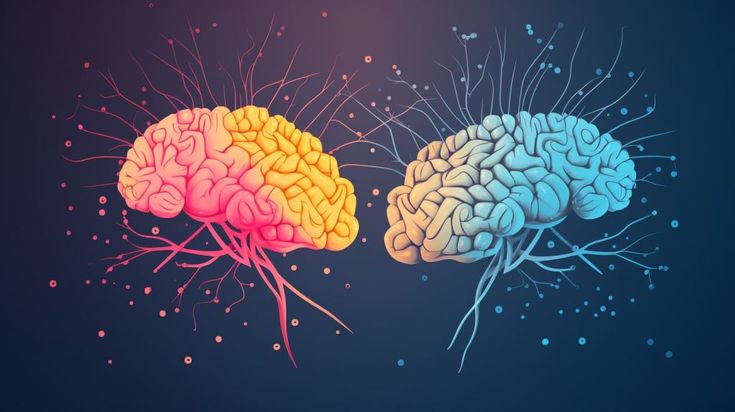In the quest for progress, humanity has always sought ways to transcend existing boundaries, embracing innovations and insights that propel us into new eras of development and understanding. “Driving Humanity Forward Through Revolutionary Insights” encapsulates the essence of this relentless pursuit. This comprehensive article delves into the transformative power of groundbreaking ideas, exploring how they shape our societies, enhance our capabilities, and address the complex challenges of the modern world. By examining various sectors and their revolutionary insights, we uncover the pathways through which humanity can achieve sustainable and inclusive growth.
Revolutionary insights are profound realizations or breakthroughs that fundamentally alter our perception, behavior, or technological capabilities. These insights often emerge from the convergence of diverse fields, fostering interdisciplinary approaches that drive innovation. They challenge the status quo, offering novel solutions to entrenched problems and opening up new avenues for exploration and development.
A. Defining Revolutionary Insights
Revolutionary insights transcend incremental improvements, representing significant leaps in knowledge or technology. They often result from:
- A. Interdisciplinary Collaboration: Combining expertise from different fields to create holistic solutions.
- B. Technological Advancements: Leveraging cutting-edge technologies to push the boundaries of what’s possible.
- C. Creative Thinking: Encouraging out-of-the-box ideas that challenge conventional wisdom.
- D. Societal Needs: Addressing pressing social issues with innovative approaches.
- E. Serendipitous Discoveries: Unplanned breakthroughs that open new research and development pathways.
B. Impact on Society
The impact of revolutionary insights on society is multifaceted, influencing various aspects of daily life, economic structures, and global interactions. Key areas of impact include:
- A. Economic Growth: Driving new industries and enhancing productivity through innovative technologies.
- B. Social Progress: Improving quality of life by addressing health, education, and social equity.
- C. Environmental Sustainability: Developing sustainable practices and technologies to protect the planet.
- D. Cultural Evolution: Shaping cultural norms and values through new ideas and practices.
- E. Global Connectivity: Enhancing communication and collaboration across borders.
Revolutionary Insights in Technology
Technology stands at the forefront of revolutionary insights, continuously reshaping how we live, work, and interact. From artificial intelligence to renewable energy, technological advancements offer unprecedented opportunities for progress.
A. Artificial Intelligence and Machine Learning
Artificial Intelligence (AI) and Machine Learning (ML) have revolutionized numerous industries by enabling machines to learn from data, make decisions, and perform tasks that were once exclusive to humans.
- A. Automation: Streamlining processes in manufacturing, logistics, and services, reducing costs and increasing efficiency.
- B. Healthcare: Enhancing diagnostics, personalized medicine, and predictive analytics to improve patient outcomes.
- C. Education: Facilitating personalized learning experiences and automating administrative tasks.
- D. Transportation: Advancing autonomous vehicles and smart transportation systems to enhance safety and efficiency.
- E. Finance: Improving fraud detection, risk management, and customer service through AI-driven solutions.
B. Renewable Energy Technologies
The shift towards renewable energy is critical for sustainable development. Innovations in this sector are driving the transition from fossil fuels to cleaner energy sources.
- A. Solar Power: Increasing efficiency and reducing costs of photovoltaic cells to make solar energy more accessible.
- B. Wind Energy: Developing advanced turbines and offshore wind farms to harness more wind energy.
- C. Energy Storage: Enhancing battery technologies to store renewable energy for consistent supply.
- D. Hydropower: Innovating small-scale hydropower systems to minimize environmental impact.
- E. Bioenergy: Utilizing organic materials to produce sustainable biofuels and reduce carbon emissions.
C. Biotechnology and Genetic Engineering
Biotechnology and genetic engineering hold the potential to revolutionize healthcare, agriculture, and environmental management.
- A. Gene Editing: Using CRISPR technology to correct genetic disorders and enhance crop resilience.
- B. Synthetic Biology: Designing and constructing new biological parts and systems for various applications.
- C. Personalized Medicine: Tailoring treatments based on individual genetic profiles for more effective healthcare.
- D. Agricultural Biotechnology: Developing genetically modified crops to increase yield and resistance to pests.
- E. Environmental Biotechnology: Creating microorganisms that can degrade pollutants and restore ecosystems.
Revolutionary Insights in Healthcare
Healthcare is undergoing a transformation driven by revolutionary insights that enhance patient care, streamline operations, and advance medical research.
A. Telemedicine and Digital Health
Telemedicine has emerged as a pivotal tool in expanding access to healthcare, particularly in remote and underserved areas.
- A. Remote Consultations: Enabling patients to consult with healthcare providers via video conferencing, reducing the need for in-person visits.
- B. Health Monitoring Devices: Utilizing wearable technology to track vital signs and monitor chronic conditions in real-time.
- C. Electronic Health Records (EHRs): Streamlining patient information management for better coordination and care.
- D. Mobile Health Applications: Offering tools for managing health, scheduling appointments, and accessing medical information.
- E. AI-Driven Diagnostics: Enhancing diagnostic accuracy and speed through machine learning algorithms.
B. Personalized Medicine
Personalized medicine represents a shift towards treatments tailored to individual genetic profiles, improving efficacy and reducing side effects.
- A. Genomic Sequencing: Analyzing genetic information to identify predispositions to certain diseases.
- B. Targeted Therapies: Developing drugs that specifically target molecular pathways involved in disease progression.
- C. Pharmacogenomics: Understanding how genetic variations affect drug metabolism and response.
- D. Biomarker Discovery: Identifying biological markers for early disease detection and monitoring treatment efficacy.
- E. Customized Treatment Plans: Creating personalized healthcare plans based on individual patient data.
C. Advanced Medical Research
Revolutionary insights in medical research are driving breakthroughs in understanding and treating complex diseases.
- A. Stem Cell Research: Exploring the potential of stem cells to regenerate damaged tissues and organs.
- B. Immunotherapy: Enhancing the immune system’s ability to fight cancer and other diseases.
- C. Neurotechnology: Investigating brain-machine interfaces to treat neurological disorders and enhance cognitive functions.
- D. Regenerative Medicine: Developing techniques to repair or replace damaged cells, tissues, and organs.
- E. Data-Driven Research: Leveraging big data and AI to accelerate medical discoveries and optimize clinical trials.
Revolutionary Insights in Education
Education systems worldwide are being transformed by revolutionary insights that promote personalized learning, accessibility, and innovation.
A. Digital Learning Platforms
Digital learning platforms are redefining education by providing flexible and personalized learning experiences.
- A. Online Courses and MOOCs: Offering accessible education to a global audience through Massive Open Online Courses.
- B. Adaptive Learning Technologies: Tailoring educational content to individual learning styles and paces.
- C. Virtual Classrooms: Facilitating interactive and collaborative learning environments through virtual platforms.
- D. Gamification: Incorporating game elements to enhance engagement and motivation in learning.
- E. E-Books and Digital Resources: Providing a vast array of learning materials accessible anytime, anywhere.
B. STEAM Education
STEAM (Science, Technology, Engineering, Arts, and Mathematics) education integrates the arts into traditional STEM disciplines, fostering creativity and critical thinking.
- A. Interdisciplinary Projects: Encouraging students to tackle real-world problems through collaborative projects.
- B. Creative Problem-Solving: Enhancing students’ ability to think creatively and develop innovative solutions.
- C. Hands-On Learning: Promoting experiential learning through experiments, simulations, and practical applications.
- D. Technology Integration: Utilizing tools like robotics, coding, and digital design to enrich the learning experience.
- E. Inclusive Curriculum: Ensuring that STEAM education is accessible and relevant to all students, regardless of background.
C. Lifelong Learning and Skill Development
In a rapidly changing world, lifelong learning and continuous skill development are essential for personal and professional growth.
- A. Professional Development Programs: Offering training and upskilling opportunities for the workforce.
- B. Online Certifications: Providing flexible and affordable ways to acquire new skills and credentials.
- C. Community Learning Initiatives: Facilitating local learning opportunities through workshops, seminars, and collaborative projects.
- D. Mentorship Programs: Connecting learners with experienced mentors for guidance and support.
- E. Adaptive Learning Pathways: Allowing individuals to tailor their learning journeys based on interests and career goals.
Revolutionary Insights in Environmental Sustainability
Environmental sustainability is a critical focus area, with revolutionary insights driving efforts to protect and preserve our planet for future generations.
A. Circular Economy Models
The circular economy aims to minimize waste and make the most of resources through recycling, reusing, and reducing consumption.
- A. Product Design for Sustainability: Creating products that are durable, repairable, and recyclable.
- B. Waste Management Innovations: Developing advanced recycling technologies and waste-to-energy solutions.
- C. Resource Efficiency: Optimizing the use of natural resources to reduce environmental impact.
- D. Sustainable Supply Chains: Ensuring that supply chains are environmentally responsible and ethically managed.
- E. Consumer Awareness Campaigns: Educating consumers about the importance of sustainable practices and responsible consumption.
B. Renewable Energy Integration
Integrating renewable energy sources into existing energy systems is essential for reducing carbon emissions and combating climate change.
- A. Smart Grids: Implementing intelligent energy distribution systems that optimize the use of renewable energy.
- B. Energy Storage Solutions: Enhancing battery technologies to store and distribute renewable energy effectively.
- C. Decentralized Energy Systems: Promoting local energy generation and distribution to increase resilience and reduce transmission losses.
- D. Policy and Incentives: Creating supportive policies and incentives to encourage the adoption of renewable energy.
- E. Community Solar Projects: Developing solar energy projects that are owned and operated by local communities.
C. Sustainable Agriculture
Sustainable agriculture practices are vital for ensuring food security while preserving environmental health and biodiversity.
- A. Precision Farming: Utilizing technology to optimize planting, watering, and harvesting, reducing waste and increasing yields.
- B. Organic Farming: Avoiding synthetic chemicals to promote soil health and biodiversity.
- C. Agroforestry: Integrating trees and shrubs into agricultural landscapes to enhance ecosystem services.
- D. Crop Diversification: Growing a variety of crops to improve resilience against pests, diseases, and climate variability.
- E. Sustainable Water Management: Implementing efficient irrigation systems and water conservation techniques to ensure the sustainable use of water resources.
Revolutionary Insights in Social Equity and Justice
Promoting social equity and justice is fundamental to driving humanity forward, ensuring that progress benefits all members of society.
A. Inclusive Policies and Practices
Inclusive policies and practices aim to eliminate discrimination and promote equal opportunities for all individuals.
- A. Anti-Discrimination Laws: Enforcing laws that protect individuals from discrimination based on race, gender, religion, and other characteristics.
- B. Equal Employment Opportunities: Ensuring fair hiring practices and promoting diversity in the workplace.
- C. Accessible Education: Providing equitable access to quality education for all, regardless of socioeconomic status.
- D. Universal Healthcare: Implementing healthcare systems that provide access to medical services for everyone.
- E. Social Safety Nets: Establishing programs that support vulnerable populations and reduce poverty.
B. Empowerment and Representation
Empowering marginalized communities and ensuring their representation in decision-making processes are crucial for social justice.
- A. Community Leadership Programs: Developing leadership skills within marginalized communities to enhance their participation in governance.
- B. Political Representation: Increasing the representation of underrepresented groups in political institutions and decision-making bodies.
- C. Economic Empowerment: Providing resources and opportunities for economic independence and growth within marginalized communities.
- D. Advocacy and Activism: Supporting movements and organizations that fight for social justice and equality.
- E. Cultural Preservation: Protecting and promoting the cultural heritage and identities of diverse communities.
C. Education and Awareness
Raising awareness and educating the public about social justice issues is essential for fostering a more equitable society.
- A. Curriculum Development: Integrating social justice topics into educational curricula to promote understanding and empathy.
- B. Public Campaigns: Launching campaigns that highlight issues of inequality and encourage societal change.
- C. Media Representation: Ensuring diverse and accurate representation of different groups in media and entertainment.
- D. Training Programs: Offering training on diversity, equity, and inclusion for organizations and institutions.
- E. Research and Data Collection: Conducting research to identify disparities and inform policy-making aimed at reducing inequality.
Revolutionary Insights in Global Collaboration
Global collaboration is essential for addressing complex, transnational challenges and fostering shared progress.
A. International Partnerships
Forming international partnerships enables countries to pool resources, knowledge, and expertise to tackle global issues.
- A. Multilateral Organizations: Strengthening institutions like the United Nations to facilitate international cooperation.
- B. Global Research Initiatives: Collaborating on scientific research projects to advance knowledge and innovation.
- C. Trade Agreements: Creating fair trade agreements that promote economic growth and sustainability.
- D. Humanitarian Aid: Coordinating efforts to provide aid and support during crises and disasters.
- E. Climate Agreements: Working together to implement and adhere to international climate agreements like the Paris Agreement.
B. Knowledge Sharing and Innovation
Sharing knowledge and fostering innovation across borders drive collective progress and address shared challenges.
- A. Open Access Research: Promoting the free exchange of scientific research and data to accelerate discoveries.
- B. Innovation Hubs: Establishing centers that facilitate collaboration and innovation among researchers and entrepreneurs.
- C. Technology Transfer: Facilitating the transfer of technology and expertise from developed to developing countries.
- D. Educational Exchange Programs: Encouraging student and faculty exchanges to promote cross-cultural learning and collaboration.
- E. Collaborative Networks: Building networks of professionals and organizations that work together on global initiatives.
C. Addressing Global Challenges
Revolutionary insights are crucial for developing solutions to pressing global challenges such as climate change, pandemics, and poverty.
- A. Climate Change Mitigation: Implementing strategies to reduce greenhouse gas emissions and adapt to climate impacts.
- B. Pandemic Preparedness: Enhancing global health systems to respond effectively to future pandemics.
- C. Sustainable Development Goals (SDGs): Working towards the United Nations’ SDGs to ensure a better and more sustainable future for all.
- D. Poverty Alleviation: Developing comprehensive strategies to reduce poverty and promote economic stability.
- E. Peace and Security: Promoting peacebuilding initiatives and conflict resolution to ensure global stability.
Challenges in Harnessing Revolutionary Insights
While revolutionary insights hold immense potential, several challenges must be addressed to fully harness their benefits.
A. Resistance to Change
Change often faces resistance from individuals and institutions accustomed to existing systems and practices.
- A. Cultural Barriers: Overcoming cultural norms and beliefs that hinder the adoption of new ideas.
- B. Institutional Inertia: Addressing the slow pace of change within established organizations and governments.
- C. Fear of the Unknown: Mitigating fears and uncertainties associated with new technologies and innovations.
- D. Lack of Awareness: Increasing awareness and understanding of the benefits and implications of revolutionary insights.
- E. Power Dynamics: Navigating power structures that may resist changes threatening established interests.
B. Ethical and Moral Considerations
The implementation of revolutionary insights must consider ethical and moral implications to ensure responsible and equitable outcomes.
- A. Privacy Concerns: Safeguarding personal data and privacy in the age of digital technology and AI.
- B. Equity and Access: Ensuring that innovations benefit all segments of society, not just a privileged few.
- C. Environmental Impact: Assessing and mitigating the environmental consequences of new technologies and practices.
- D. Human Rights: Upholding human rights in the development and deployment of revolutionary solutions.
- E. Ethical AI: Developing AI systems that operate transparently, fairly, and without bias.
C. Resource Allocation
Effective resource allocation is critical for the successful implementation of revolutionary insights, requiring strategic planning and investment.
- A. Funding and Investment: Securing adequate financial resources to support research, development, and implementation.
- B. Skilled Workforce: Developing a workforce with the necessary skills and expertise to drive innovation.
- C. Infrastructure Development: Building the necessary infrastructure to support new technologies and systems.
- D. Policy and Regulation: Creating supportive policies and regulatory frameworks that encourage innovation while ensuring safety and compliance.
- E. Collaboration and Coordination: Facilitating collaboration among stakeholders to optimize resource use and avoid duplication of efforts.
Strategies for Maximizing the Impact of Revolutionary Insights
To fully realize the potential of revolutionary insights, strategic approaches must be employed to overcome challenges and ensure sustainable progress.
A. Fostering an Innovative Culture
Creating an environment that encourages creativity, experimentation, and risk-taking is essential for driving innovation.
- A. Encouraging Creativity: Promoting creative thinking and problem-solving within organizations and communities.
- B. Supporting Research and Development: Investing in R&D to explore new ideas and technologies.
- C. Embracing Failure: Viewing failures as learning opportunities and stepping stones to success.
- D. Recognizing and Rewarding Innovation: Incentivizing individuals and teams to develop and implement innovative solutions.
- E. Providing Resources and Support: Offering the necessary tools, funding, and mentorship to nurture innovation.
B. Building Robust Educational Systems
Education systems play a crucial role in preparing individuals to contribute to and benefit from revolutionary insights.
- A. Curriculum Enhancement: Integrating subjects that promote critical thinking, creativity, and technical skills.
- B. Teacher Training: Equipping educators with the skills and knowledge to foster an innovative learning environment.
- C. Access to Technology: Ensuring that students have access to the latest technologies and digital tools.
- D. Encouraging Lifelong Learning: Promoting continuous education and skill development throughout an individual’s life.
- E. Partnerships with Industry: Collaborating with businesses and organizations to align education with real-world needs and opportunities.
C. Promoting Ethical and Responsible Innovation
Ensuring that innovation is conducted ethically and responsibly is vital for sustainable and equitable progress.
- A. Establishing Ethical Guidelines: Creating frameworks that guide the ethical development and deployment of new technologies.
- B. Inclusive Decision-Making: Involving diverse stakeholders in the decision-making process to ensure that multiple perspectives are considered.
- C. Transparency and Accountability: Maintaining openness about innovation processes and holding innovators accountable for their actions.
- D. Impact Assessment: Conducting thorough assessments to understand the potential social, economic, and environmental impacts of innovations.
- E. Regulatory Oversight: Implementing regulations that protect public interests while fostering innovation.
D. Enhancing Global Cooperation
Global cooperation is essential for addressing transnational challenges and ensuring that revolutionary insights benefit all of humanity.
- A. International Agreements: Participating in and adhering to international agreements that promote cooperation and shared goals.
- B. Knowledge Exchange Platforms: Creating platforms for the exchange of knowledge, ideas, and best practices across borders.
- C. Collaborative Research Initiatives: Engaging in joint research projects that leverage global expertise and resources.
- D. Cross-Border Investments: Facilitating investments that support innovation and development in different regions.
- E. Shared Goals and Vision: Aligning global efforts towards common objectives that promote sustainable and inclusive progress.
Case Studies: Revolutionary Insights in Action
Examining real-world examples of revolutionary insights in action provides valuable insights into their practical applications and benefits.
A. The Rise of Electric Vehicles (EVs)
Electric vehicles represent a revolutionary shift in the transportation sector, driven by advancements in battery technology and a growing emphasis on sustainability.
- A. Technological Advancements: Improvements in battery efficiency and range have made EVs more viable for widespread adoption.
- B. Environmental Benefits: EVs produce zero tailpipe emissions, significantly reducing greenhouse gas emissions and air pollution.
- C. Economic Impact: The EV industry has created new jobs and economic opportunities in manufacturing, infrastructure development, and renewable energy sectors.
- D. Policy Support: Government incentives and regulations have accelerated the adoption of EVs by making them more affordable and accessible.
- E. Consumer Acceptance: Increasing consumer awareness and demand for sustainable transportation options have driven market growth.
B. The Human Genome Project
The Human Genome Project exemplifies how revolutionary insights can transform our understanding of biology and medicine.
- A. Comprehensive Mapping: Successfully mapped the entire human genome, providing a foundation for genetic research and personalized medicine.
- B. Medical Advancements: Enabled the identification of genetic markers for diseases, leading to improved diagnostics and targeted therapies.
- C. Biotechnology Growth: Stimulated advancements in biotechnology, including gene editing and synthetic biology.
- D. Ethical Considerations: Raised important ethical questions about genetic privacy, modification, and equity in access to genetic technologies.
- E. Global Collaboration: Demonstrated the power of international collaboration in achieving ambitious scientific goals.
C. The Internet of Things (IoT)
The Internet of Things (IoT) represents a revolutionary insight in connectivity, transforming how devices communicate and interact within various ecosystems.
- A. Enhanced Connectivity: Enables seamless communication between devices, improving efficiency and functionality in homes, cities, and industries.
- B. Data-Driven Insights: Facilitates the collection and analysis of vast amounts of data, driving informed decision-making and innovation.
- C. Smart Homes and Cities: Enhances living environments through automation, energy management, and improved infrastructure.
- D. Industrial Applications: Optimizes manufacturing processes, supply chains, and maintenance through real-time monitoring and predictive analytics.
- E. Security Challenges: Highlights the need for robust cybersecurity measures to protect interconnected systems from vulnerabilities and attacks.
The Future of Revolutionary Insights
As we look to the future, the potential for revolutionary insights to drive humanity forward remains immense. Emerging trends and innovations will continue to shape our world, addressing new challenges and unlocking opportunities for growth and development.
A. Quantum Computing
Quantum computing promises to revolutionize computing power, solving complex problems that are currently intractable for classical computers.
- A. Unprecedented Processing Speed: Enables the rapid solving of complex algorithms, accelerating research and innovation across various fields.
- B. Breakthroughs in Science: Facilitates advancements in materials science, pharmaceuticals, and climate modeling through enhanced computational capabilities.
- C. Cryptography and Security: Revolutionizes data encryption and cybersecurity, providing new methods for protecting sensitive information.
- D. Optimization Problems: Enhances the ability to solve optimization problems in logistics, finance, and artificial intelligence.
- E. Ethical Implications: Raises questions about the ethical use of quantum technologies and the potential for misuse in areas like cryptography and surveillance.
B. Space Exploration and Colonization
Revolutionary insights in space exploration and colonization hold the promise of expanding humanity’s presence beyond Earth.
- A. Interplanetary Travel: Developing technologies for efficient and sustainable travel to other planets, such as Mars and beyond.
- B. Space Habitats: Designing habitable environments in space to support long-term human settlement and research.
- C. Resource Utilization: Exploring the extraction and utilization of extraterrestrial resources to support space missions and reduce dependence on Earth’s resources.
- D. Scientific Discovery: Advancing our understanding of the universe through exploration and research conducted in space.
- E. International Cooperation: Promoting global collaboration in space exploration to share knowledge, resources, and expertise.
C. Sustainable Urban Development
As urban populations continue to grow, sustainable urban development becomes increasingly important for ensuring livable and resilient cities.
- A. Green Architecture: Incorporating sustainable materials and energy-efficient designs in building construction.
- B. Smart Infrastructure: Implementing intelligent systems for transportation, energy, and waste management to enhance urban efficiency.
- C. Urban Agriculture: Promoting local food production within cities to reduce transportation emissions and enhance food security.
- D. Resilient Design: Creating urban environments that can withstand natural disasters and adapt to climate change impacts.
- E. Community Engagement: Involving local communities in the planning and development process to ensure that urban growth meets the needs of residents.
D. Biotechnology and Synthetic Biology
Advancements in biotechnology and synthetic biology will continue to revolutionize medicine, agriculture, and environmental management.
- A. Advanced Gene Editing: Refining CRISPR and other gene-editing technologies for precise and safe modifications.
- B. Synthetic Organisms: Creating synthetic life forms for applications in medicine, industry, and environmental remediation.
- C. Regenerative Medicine: Developing techniques to regenerate damaged tissues and organs, enhancing healthcare outcomes.
- D. Sustainable Biofuels: Producing biofuels from sustainable sources to reduce dependence on fossil fuels.
- E. Ethical and Regulatory Frameworks: Establishing guidelines to ensure responsible development and use of biotechnological innovations.
Conclusion
Driving humanity forward through revolutionary insights is a dynamic and multifaceted endeavor that requires continuous innovation, collaboration, and ethical consideration. By embracing groundbreaking ideas and fostering an environment conducive to creativity and progress, we can address the complex challenges of our time and unlock new possibilities for sustainable and inclusive growth. Whether through advancements in technology, healthcare, education, or environmental sustainability, revolutionary insights hold the key to shaping a prosperous and resilient future for all. As we navigate the ever-evolving landscape of the 21st century, the thoughtful application of these insights will be instrumental in driving humanity towards a brighter and more equitable tomorrow.














